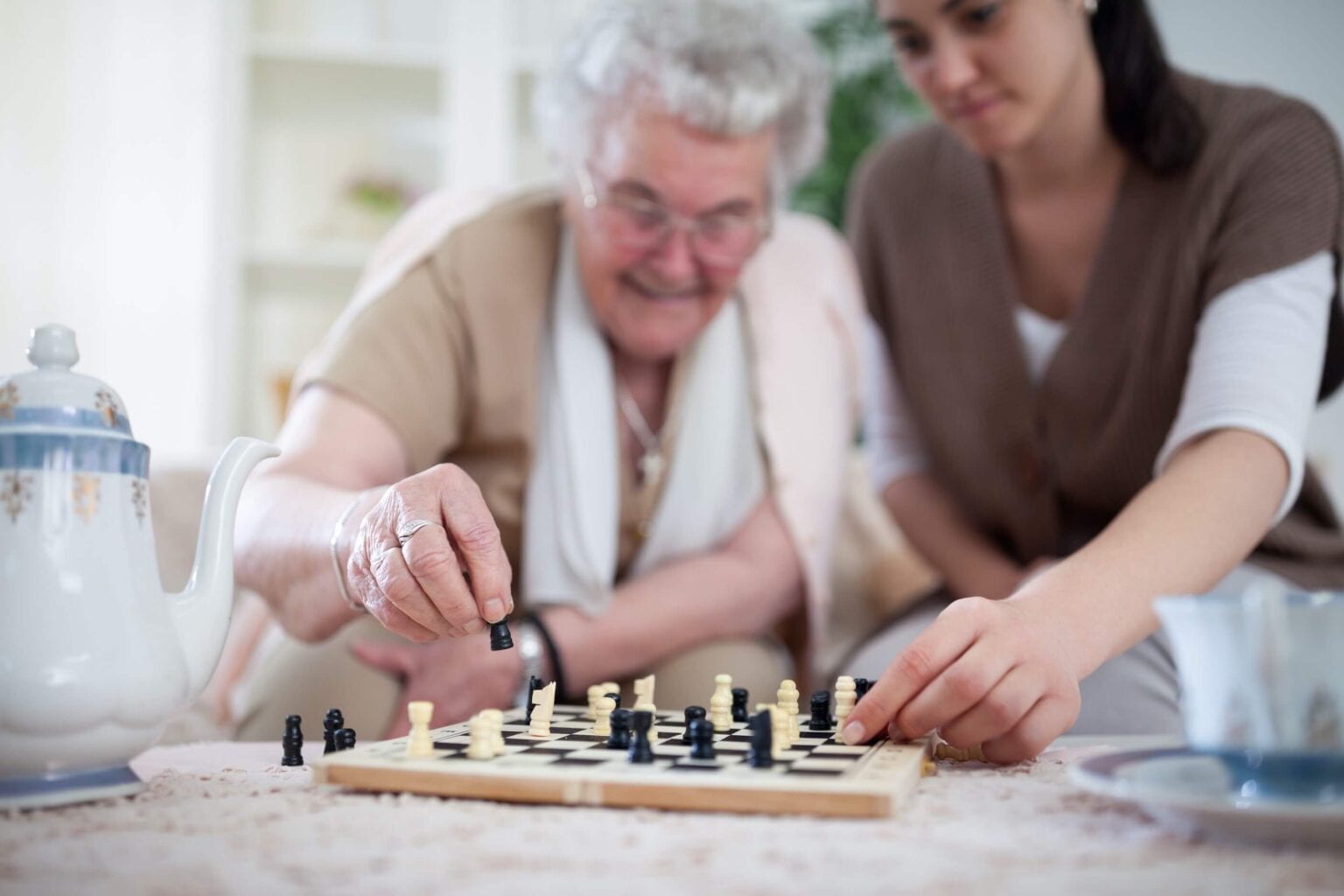As we age, many of us begin to consider our options for long-term care. For those of us who are used to living independently, the thought of moving into a nursing home can be overwhelming and emotionally challenging. While nursing homes offer care and support, they also come with the difficult reality of leaving behind the comfort of your home—and often, your beloved pets.
For many people, pets aren’t just animals; they’re family. They provide companionship, love, and a sense of stability, especially for older adults living with health conditions.
One alternative that’s gaining popularity amongst families is having a live-in carer instead of moving into a nursing home. A live-in carer provides 1-2-1 care at home, allowing individuals to stay in the own home while receiving the support they need. In addition to offering comfort and flexibility, having a live-in carer allows you to keep your pets by your side. Keeping your pets with you at home provide numerous emotional, physical, and social benefits that can greatly improve the well-being of older adults.
Here are several ways in which pets can positively affect the lives of elderly people:
1. Emotional Support
Combatting Loneliness: Many elderly people experience feelings of loneliness or isolation, especially if they live alone or have lost loved ones. Pets offer unconditional companionship, helping to alleviate these feelings and provide a sense of purpose.
Mental Health Benefits: Pets can reduce feelings of depression and anxiety. By caring for a pet they create a routine and a sense of responsibility, which can improve mood and well-being.
2. Physical Health Benefits
Staying Active: Pets, particularly dogs, encourage their owners to stay active. Walking a dog or playing with pets helps older adults maintain mobility and cardiovascular health. Physical activity is vital for maintaining strength, flexibility, and balance, which reduces the risk of falls.
Lowering Stress: Interacting with pets can lower cortisol (the stress hormone) levels and boost serotonin, a hormone associated with well-being. Stroking a dog or cat can calm an elderly person and helps to reduce stress.
Improved Immune System: Some studies suggest that owning pets may contribute to a stronger immune system. The companionship and stress-reducing benefits of pets can help the elderly maintain better overall health.
Creating a Sense of Purpose: For many of our elderly, caring for a pet gives them a sense of purpose. The daily tasks of feeding, grooming, and walking a pet can add structure to their day and keep them engaged.
3. Social Engagement
Socialising: Walking a dog at the park often leads to conversations with other pet owners, fostering a sense of community. This is especially important for elderly people who might otherwise experience social isolation.
Building Emotional Connections: Pets are excellent listeners and offer non-judgmental companionship. For elderly people dealing with grief, loss, or difficult life transitions, pets can provide comfort and a safe space to express emotions.
4. Promoting Cognitive Function
Mental Stimulation: The interaction with pets stimulates cognitive function. Whether it’s training a dog or simply engaging in pet-related activities, these tasks can help keep an elderly person mentally sharp.
Memory Aid: For elderly individuals suffering from conditions like dementia or Alzheimer’s, pets can play a crucial role in memory recall. Familiar pets and their routines can trigger memories, provide reassurance, and help reduce confusion or agitation.
5. Comfort and Security
Physical Comfort: Pets, particularly dogs and cats, offer physical comfort and a sense of security, which can improve sleep patterns. The presence of a pet can help reduce night time anxiety, leading to more restful and deeper sleep.
Reduces Anxiety at Night: Older adults may feel anxious or frightened at night due to health issues, medication side effects, or the fear of being alone. Having a pet nearby can provide a calming presence, easing those anxieties.
Unconditional Love: Pets offer unconditional love and affection, which is particularly meaningful for elderly individuals who might feel a sense of loss or disconnection from their human relationships. This bond fosters emotional stability and helps maintain a sense of self-worth and happiness.
6. Supporting Independence and Self-Esteem
Maintaining Independence: Owning a pet can help elderly individuals maintain a sense of independence and control over their lives. They continue to care for another living being, which can empower them to take care of themselves and remain active in their own community.
Boosts Self-Esteem: Caring for a pet can boost an elderly person’s self-esteem. The responsibility of providing for a pet, along with the pet’s affection, can reinforce a positive sense of self-worth and accomplishment.
How can a carer look after my pet?
A live in carer will provide around the clock care and support to your loved one while also helping care for your pet. The carer will:
- Help with feeding, watering, and maintaining the pet’s routine
- Take pets for regular walks and provide daily exercise
- Ensure pets are groomed and cleaned as needed
- Clean litter trays and cages
- Schedule and accompany pets to vet appointments
- Monitor pets’ health and safety, providing peace of mind
Live-in Care lets you keep your furry friends close
For many people, being able to stay in their own home with their pets by their side offers both emotional and practical advantages. The comfort of familiar surroundings, the therapeutic benefits of pets, and the care that a live-in carer provides can make a world of difference in someone’s quality of life.
For those who cannot imagine their life without their furry friends, the choice to keep them close—while still receiving the care they need—can be a game-changer. It’s a way to preserve independence, maintain emotional well-being, and enjoy the comforting presence of pets at home for as long as possible.
Ultimately, having a live-in carer allows you to live out your later years with dignity, love, and the support of both a compassionate live in carer and your four-legged friends.
Let’s keep them together at home. To find out more about about our home care services please call: 0800 138 4030 or email: [email protected]
Schedule a free assessment
Get in touch to speak with our care team about your ideal care plan.



